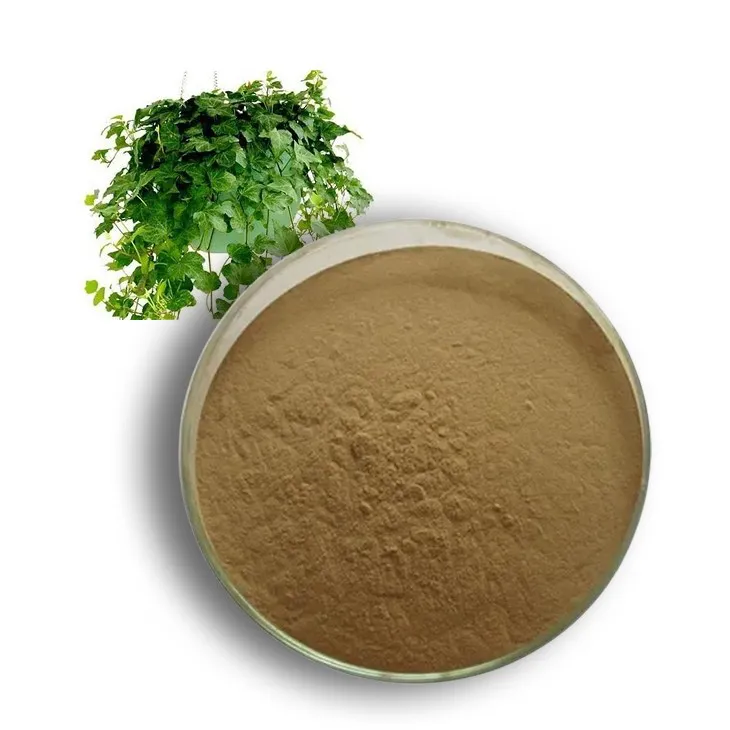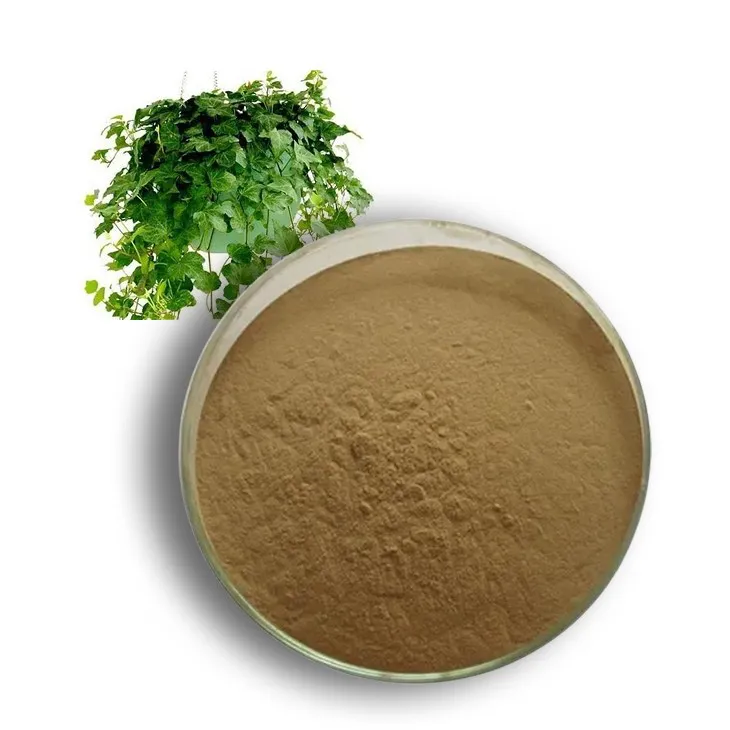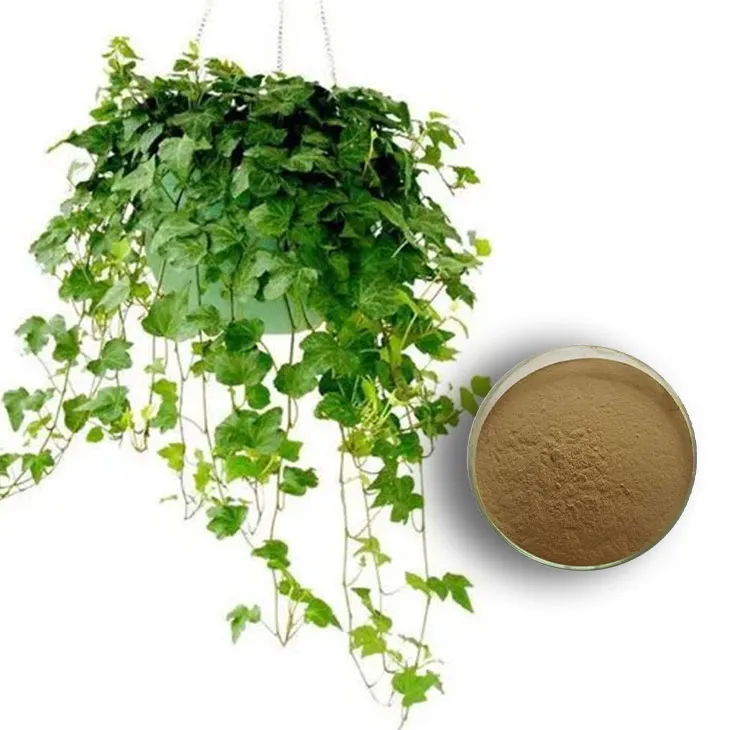- 0086-571-85302990
- sales@greenskybio.com
Chinese ivy extract factory.
2024-11-28

1. Introduction
China has emerged as a major player in the global botanical extract industry, and its Ivy Extract factories are a significant part of this success story. Ivy, a plant rich in bioactive compounds, has attracted considerable attention in various fields such as pharmaceuticals, cosmetics, and nutraceuticals. Chinese Ivy Extract factories are at the forefront of harnessing the potential of this plant through advanced extraction techniques.

2. Advanced Extraction Technology in Chinese Factories
2.1 Modern Equipment
Chinese Ivy Extract factories are equipped with state - of - the - art extraction equipment. These machines are designed to handle the complex process of extracting valuable compounds from ivy. For example, supercritical fluid extraction technology is often employed. This method uses substances like carbon dioxide under supercritical conditions to extract bioactive components with high efficiency and minimal solvent residue. It allows for a more precise extraction, targeting specific compounds within the ivy plant.
2.2 Process Optimization
Through continuous research and development, Chinese factories have optimized the extraction process. They have fine - tuned parameters such as temperature, pressure, and extraction time to ensure the maximum yield of bioactive compounds. This optimization not only increases the quantity of the extract but also enhances its quality. For instance, by carefully controlling the extraction temperature, the factories can prevent the degradation of heat - sensitive compounds in ivy.
3. Quality Control in the Extraction Process
3.1 Stringent Raw Material Selection
Quality control begins with the selection of raw ivy materials. Chinese factories source high - quality ivy, either from sustainable cultivation or wild collection under proper management. In the case of wild collection, strict regulations are in place to ensure that the collection is sustainable and does not harm the natural ecosystem. Sustainable cultivation of ivy is also being promoted, which involves proper land management, irrigation, and pest control. This ensures a consistent supply of high - quality raw materials for extraction.
3.2 In - process Quality Checks
During the extraction process, multiple quality checks are carried out. These checks include monitoring the purity of the extract, the presence of contaminants, and the concentration of bioactive compounds. Sophisticated analytical instruments such as high - performance liquid chromatography (HPLC) are used to accurately measure the composition of the extract. If any deviation from the set quality standards is detected, immediate corrective actions are taken.
3.3 Final Product Quality Assurance
Before the ivy extract is packaged and shipped, a final quality assurance step is performed. The final product is tested for its overall quality, including its stability, shelf - life, and compliance with international quality standards. This ensures that the customers receive a high - quality ivy extract that meets their requirements.
4. Domestic Market Significance
4.1 Pharmaceutical Applications
In the domestic pharmaceutical market, ivy extract has shown great potential. It is being studied for its anti - inflammatory, antioxidant, and antimicrobial properties. Chinese factories supply ivy extract to pharmaceutical companies, which are then used in the development of new drugs or as ingredients in existing medications. For example, some traditional Chinese medicine formulations may incorporate ivy extract to enhance their therapeutic effects.
4.2 Cosmetic Industry
The cosmetic industry in China also benefits from ivy extract produced by local factories. Ivy extract is known for its skin - nourishing and anti - aging properties. It is used in a variety of cosmetic products such as creams, lotions, and serums. Chinese consumers are increasingly demanding natural - based cosmetic ingredients, and ivy extract fits this trend perfectly.
4.3 Nutraceuticals
With the growing awareness of health and wellness in China, nutraceuticals are on the rise. Ivy extract, rich in vitamins, minerals, and bioactive compounds, is being used in the production of nutraceutical products. These products, which include dietary supplements and functional foods, are becoming popular among health - conscious consumers in the domestic market.5. Impact on the International Market
5.1 Global Pharmaceutical Market
Chinese ivy extract factories have a significant impact on the international pharmaceutical market. Their high - quality extracts are exported to pharmaceutical companies around the world. These extracts are used in research and development of new drugs, especially in areas related to anti - inflammatory and antioxidant therapies. For example, European and American pharmaceutical companies are increasingly interested in Chinese - sourced ivy extract for their drug development projects.
5.2 International Cosmetic Industry
In the international cosmetic industry, Chinese ivy extract has found a niche. Many international cosmetic brands are incorporating Chinese - produced ivy extract into their products. This is due to its high quality and relatively lower cost compared to other sources. The use of Chinese ivy extract in international cosmetics not only enhances the products' efficacy but also adds a natural and exotic touch.
5.3 Global Nutraceutical Market
The global nutraceutical market is also receptive to Chinese - produced ivy extract. As the demand for natural and healthy ingredients grows globally, Chinese factories are well - positioned to supply ivy extract to international nutraceutical companies. These extracts are used in a wide range of products, from dietary supplements to fortified foods, catering to the health - conscious consumers worldwide.6. Research and Development Efforts
6.1 New Applications Exploration
Chinese ivy extract factories are constantly exploring new applications for ivy extract. Researchers are investigating its potential in areas such as cancer treatment, neurodegenerative diseases, and cardiovascular health. For example, preliminary studies suggest that certain compounds in ivy extract may have anti - cancer properties. By further researching these potential applications, Chinese factories can expand the market for ivy extract and contribute to global health.
6.2 Improving Extraction Efficiency
Another area of focus in research and development is improving extraction efficiency. Scientists in Chinese factories are working on developing new extraction methods and improving existing ones. This includes exploring the use of novel solvents, enzymes, or combination extraction techniques. By increasing extraction efficiency, the factories can reduce production costs, increase yield, and make ivy extract more competitive in the global market.7. Conclusion
Chinese ivy extract factories are a prominent force in the botanical extract industry. With their advanced extraction technology, strict quality control, significant domestic and international market impact, and continuous research and development efforts, they are well - poised to continue their growth and contribute to the development of various industries. As the demand for natural and bioactive - rich products continues to rise, Chinese ivy extract factories will play an even more important role in the future.
FAQ:
What are the main applications of ivy extracts from Chinese factories?
Ivy extracts from Chinese factories are mainly used in the pharmaceutical, cosmetic, and nutraceutical industries. In the pharmaceutical field, they may be used in the development of drugs due to their bioactive compounds. In cosmetics, they can be added to products for various skin - related benefits. And in the nutraceutical industry, they can be used to produce supplements.
How do Chinese ivy extract factories ensure the quality of their products?
Chinese ivy extract factories ensure product quality in several ways. Firstly, they adhere to strict quality control standards during the extraction process. Secondly, they source high - quality raw ivy materials, which are often from sustainable cultivation or wild collection under proper management. These steps help to ensure the consistency and purity of the extract.
What kind of extraction technology do Chinese ivy extract factories use?
Chinese ivy extract factories are equipped with advanced extraction technology. However, the specific technology can vary from factory to factory. Commonly used methods may include solvent extraction, supercritical fluid extraction, etc. These technologies are used to effectively extract the bioactive compounds from ivy while maintaining their properties.
Do Chinese ivy extract factories mainly supply to the domestic market?
No, Chinese ivy extract factories not only serve the domestic market but also have a significant impact on the international market. Their products are exported to many countries around the world, contributing to the global development of relevant industries.
How are Chinese ivy extract factories promoting the development of the industry?
Chinese ivy extract factories are promoting the development of the industry through continuous research and development efforts. They are constantly exploring new applications for ivy extracts, which can expand the market for these products. Also, by improving the extraction efficiency, they can increase production capacity and reduce costs, making ivy extracts more accessible and competitive in the market.
Related literature
- Ivy Extract: Properties and Potential Applications"
- "The Role of Botanical Extracts from China in the Global Market"
- "Advanced Extraction Technologies in Chinese Botanical Extract Factories"
- ▶ Hesperidin
- ▶ citrus bioflavonoids
- ▶ plant extract
- ▶ lycopene
- ▶ Diosmin
- ▶ Grape seed extract
- ▶ Sea buckthorn Juice Powder
- ▶ Beetroot powder
- ▶ Hops Extract
- ▶ Artichoke Extract
- ▶ Reishi mushroom extract
- ▶ Astaxanthin
- ▶ Green Tea Extract
- ▶ Curcumin Extract
- ▶ Horse Chestnut Extract
- ▶ Other Problems
- ▶ Boswellia Serrata Extract
- ▶ Resveratrol Extract
- ▶ Marigold Extract
- ▶ Grape Leaf Extract
- ▶ blog3
- ▶ blog4
-
The best honeysuckle pollen on the market.
2024-11-28
-
The Best Rosemary Extract in 2024.
2024-11-28
-
The best - quality feverfew extract.
2024-11-28
-
The best organic aged garlic extract.
2024-11-28
-
Konjac flour manufacturers from China.
2024-11-28
-
Certified organic comfrey extract.
2024-11-28
-
The best sophora japonica extract in 2024.
2024-11-28
-
Black Rice Extract Manufacturers from China.
2024-11-28
-
Licorice Root Extract Powder
2024-11-28
-
Yohimbine Bark Extract
2024-11-28
-
Green coffee bean Extract
2024-11-28
-
Stevia Extract
2024-11-28
-
Polygonum Cuspidatum Extract
2024-11-28
-
Saw Palmetto Extract
2024-11-28
-
Genistein
2024-11-28
-
Panax Ginseng Leaf Extract
2024-11-28
-
Troxerutin
2024-11-28
-
Propolis Extract Powder
2024-11-28





















